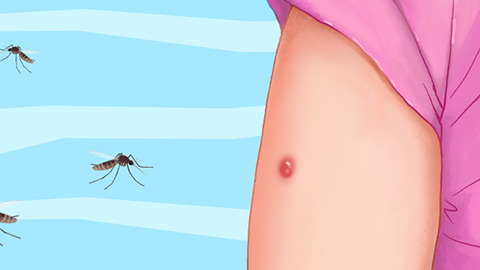Why do mosquito bites cause allergic reactions?
The main reasons why mosquito bites can cause allergic reactions include excessive immune response, toxins and enzymes in mosquito saliva, histamine release and vasodilation, impaired skin barrier and risk of infection, and genetic predisposition to allergies. If any abnormalities occur, prompt medical attention is recommended. The detailed explanation is as follows:

1. Excessive immune response: The human immune system may have an excessive response to mosquito bites. This excessive reaction can not only cause local skin inflammation and itching but may also trigger systemic allergic reactions, such as difficulty breathing, fever, and general discomfort.
2. Toxins and enzymes in mosquito saliva: When mosquitoes bite, they inject saliva into the human body. The saliva contains various toxins and anticoagulant enzymes. These substances can inhibit blood coagulation in the human body, allowing the mosquito to suck blood smoothly. These toxins and enzymes may trigger immune responses in individuals with sensitive constitutions, leading to allergic symptoms.
3. Histamine release and vasodilation: After a mosquito bite, the human immune system identifies and attacks foreign substances in the mosquito's saliva, triggering a series of immune responses. These responses include the release of histamine, a substance that can cause vasodilation and inflammation. Vasodilation leads to symptoms such as redness, swelling, pain, and itching at the bite site.
4. Impaired skin barrier and risk of infection: When mosquitoes bite, their mouthparts pierce the skin, causing tiny wounds. These wounds not only disrupt the skin's natural barrier but also increase the risk of microbial invasion such as bacteria and viruses. Individuals with sensitive constitutions are more prone to allergic reactions when their skin barrier is compromised.
5. Genetic predisposition to allergies: Allergic constitutions often have a genetic predisposition. If there is a family history of allergic reactions to mosquito bites, the likelihood of an individual experiencing an allergic reaction after being bitten also increases.
If an allergic reaction occurs, medications such as peony phenol ointment, compound beclomethasone camphor cream, and camphor camphor salicylate cream can be used under a doctor's guidance to alleviate symptoms.







